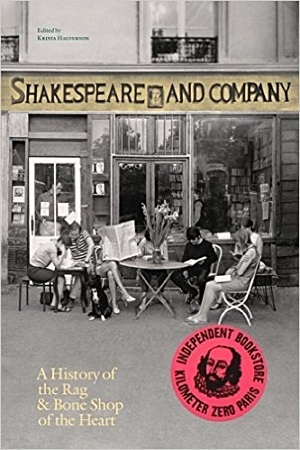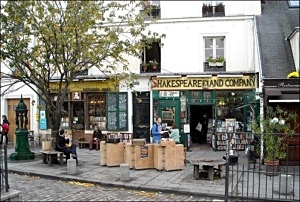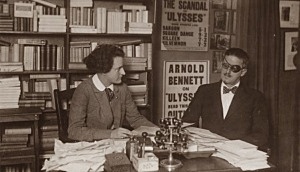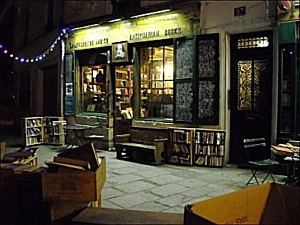Fleurs du Mal Magazine


Or see the index
 Shakespeare Sonnetten
Shakespeare Sonnetten
Mis het niet: alleen op zaterdag 19 november!
Op zaterdag 19 november 2016 organiseert Toneelgroep De Appel een middag waarin zoveel mogelijk sonnetten van Shakespeare worden voorgedragen. Een uniek evenement waaraan vele (ex) Appelacteurs en andere bekenden uit de wereld van theater, onderwijs en politiek aan deelnemen. Tussen de sonnetten door kan er bij de bar een drankje gekocht worden.
Inmiddels hebben de volgende gasten toegezegd om mee te doen: Sara Bergen, Casper van Bohemen, Peter Bolhuis, Marjet van Cleeff, Jan van Eijndthoven, Stephan Evenblij, Stef Feld, Hubert Fermin, Casper Gimbrère, Flore Hageman, Roel Janssen, Tom Jaspers, Katarina Justic, Sofieke de Kater, Joop Keesmaat, Yvonne Keuls, Trudi Klever, Leonoor Koster, Marjolein Linck, Hugo Maerten, Martine de Moor, Marcel Ott, Jan Pronk, Tatiana Radier, Trins Snijders, Gertjan Spuij, Nicolien van der Veer, René Vernout, Leny Vos en Daan Wetering.
Toneelgroep De Appel
Toneelgroep De Appel staat o.a. voor bijzondere en groot gemonteerde theaterproducties. Het gezelschap is wat betreft artistieke uitstraling en publieksbereik niet weg te denken uit het Nederlandse theaterlandschap.
Het ensemble
Binnen het Nederlands toneel is een hecht ensemble een zeldzaam verschijnsel geworden. Voor De Appel is het ensemble essentieel. Dat betekent dat ook in de repertoirekeuze rekening wordt gehouden met een optimale bezetting vanuit het eigen ensemble. Natuurlijk worden er bij vrijwel iedere productie ook gastacteurs aangetrokken.
Het Appeltheater
De Appel bespeelt al vele jaren het eigen Appeltheater aan de Duinstraat in Scheveningen. Ooit de remise van de Haagse paardentram, maar door De Appel omgebouwd tot een flexibel sfeervol theater. Een theater waarin het gezelschap naar eigen inzicht kan experimenteren, waarin gezocht kan worden naar publieksopstellingen die passen bij het stuk. Geen gezelschap heeft de flexibiliteit van de eigen ruimte zozeer in haar voorstellingen zichtbaar weten te maken. Vormgevers als Tom Schenk, André Joosten, Guus van Geffen en Theo Tienhooven hebben – ruimtelijk gezien – in het Appeltheater hun grootste wonderen verricht.
Het Appeltheater is een uniek gebouw waar het publiek steeds wordt verrast en zich in een andere omgeving waant. Het hart van het gezelschap wordt gevormd door het spelersensemble waarin alle generaties zijn vertegenwoordigd.
Het Appeltheater beschikt over drie zalen waarin de voorstellingen worden gemaakt, de grote zaal met een capaciteit van tussen de 300 en 500 toeschouwers (afhankelijk van de tribune opstelling) en twee studio’s met ieder ongeveer 100 stoelen.
zaterdag 19 november 2016, aanvang 14.30 uur, Appeltheater
kaarten € 17,50 / Appelvrienden/CJP + Studentenkaart + Cultuurkaart € 15,-
# Kaarten bestellen klik hier
fleursdumal.nl magazine
More in: Archive S-T, Art & Literature News, Shakespeare, William, THEATRE

William Shakespeare
(1564-1616)
Good name in man and woman
Good name in man and woman, dear my lord,
Is the immediate jewel of their souls:
Who steals my purse steals trash; ’tis something, nothing;
‘Twas mine, ’tis his, and has been slave to thousands;
But he that filches from me my good name
Robs me of that which not enriches him
And makes me poor indeed.
William Shakespeare, “Othello”, Act 3 scene 3
Shakespeare 400 (1616 – 2016)
fleursdumal.nl magazine
More in: Archive S-T, Shakespeare, William

William Shakespeare
(1564-1616)
The quality of mercy
The quality of mercy is not strain’d,
It droppeth as the gentle rain from heaven
Upon the place beneath. It is twice blest:
It blesseth him that gives and him that takes.
‘T is mightiest in the mightiest: it becomes
The throned monarch better than his crown;
His sceptre shows the force of temporal power,
The attribute to awe and majesty,
Wherein doth sit the dread and fear of kings;
But mercy is above this sceptred sway,
It is enthroned in the hearts of kings,
It is an attribute to God himself;
And earthly power doth then show likest God’s,
When mercy seasons justice. Therefore, Jew,
Though justice be thy plea, consider this,
That in the course of justice none of us
Should see salvation: we do pray for mercy;
And that same prayer doth teach us all to render
The deeds of mercy.
William Shakespeare, “The Merchant of Venice”, Act 4 scene 1
Shakespeare 400 (1616 – 2016)
fleursdumal.nl magazine
More in: Archive S-T, Shakespeare, William

William Shakespeare
(1564-1616)
To-morrow
To-morrow, and to-morrow, and to-morrow,
Creeps in this petty pace from day to day
To the last syllable of recorded time,
And all our yesterdays have lighted fools
The way to dusty death. Out, out, brief candle!
Life’s but a walking shadow, a poor player
That struts and frets his hour upon the stage
And then is heard no more: it is a tale
Told by an idiot, full of sound and fury,
Signifying nothing.
William Shakespeare, “Macbeth”, Act 5 scene 5
Shakespeare 400 (1616 – 2016)
fleursdumal.nl magazine
More in: Archive S-T, Shakespeare, William

William Shakespeare
(1564-1616)
In this dagger
Is this a dagger which I see before me,
The handle toward my hand?
Come, let me clutch thee.
I have thee not, and yet I see thee still.
Art thou not, fatal vision, sensible
To feeling as to sight? or art thou but
A dagger of the mind, a false creation,
Proceeding from the heat-oppressed brain?
William Shakespeare, “Macbeth”, Act 2 scene 1
Shakespeare 400 (1616 – 2016)
fleursdumal.nl magazine
More in: Archive S-T, Shakespeare, William

William Shakespeare
(1564-1616)
Come, gentle night
“Come, gentle night; come, loving, black-browed night;
Give me my Romeo; and, when I shall die,
Take him and cut him out in little stars,
And he will make the face of heaven so fine
That all the world will be in love with night …”
William Shakespeare, Romeo and Juliet
Shakespeare 400 (1616 – 2016)
fleursdumal.nl magazine
More in: Archive S-T, Shakespeare, William

William Shakespeare
(1564-1616)
Our revels now are ended
Our revels now are ended. These our actors,
As I foretold you, were all spirits, and
Are melted into air, into thin air:
And, like the baseless fabric of this vision,
The cloud-capp’d towers, the gorgeous palaces,
The solemn temples, the great globe itself,
Yea, all which it inherit, shall dissolve,
And, like this insubstantial pageant faded,
Leave not a rack behind. We are such stuff
As dreams are made on; and our little life
Is rounded with a sleep.
William Shakespeare, “The Tempest”, Act 4 scene 1
Shakespeare 400 (1616 – 2016)
fleursdumal.nl magazine
More in: Archive S-T, Shakespeare, William

William Shakespeare
(1564-1616)
Doubt
Doubt that the stars are fire;
Doubt that the sun doth move;
Doubt truth to be a liar;
But never doubt I love.
William Shakespeare, Hamlet, Act II, sc. 2
Shakespeare 400 (1616 – 2016)
fleursdumal.nl magazine
More in: Archive S-T, Shakespeare, William
 A Biography of a Bookstore – Shakespeare and Company, Paris: A History of the Rag & Bone Shop of the Heart – by Krista Halverson (Editor) – Sylvia Whitman (Afterword) – Jeannette Winterson (Foreword)
A Biography of a Bookstore – Shakespeare and Company, Paris: A History of the Rag & Bone Shop of the Heart – by Krista Halverson (Editor) – Sylvia Whitman (Afterword) – Jeannette Winterson (Foreword)
A copiously illustrated account of the famed Paris bookstore on its 65th anniversary.
For almost 70 years, Shakespeare and Company has been a home-away-from-home for celebrated writers—including James Baldwin, Jorge Luis Borges, A. M. Homes, and Dave Eggers—as well as for young, aspiring authors and poets. Visitors are invited to read in the library, share a pot of tea, and sometimes even live in the shop itself, sleeping in beds tucked among the towering shelves of books. Since 1951, more than 30,000 have slept at the “rag and bone shop of the heart.”
 This first-ever history of the legendary bohemian bookstore in Paris interweaves essays and poetry from dozens of writers associated with the shop–Allen Ginsberg, Anaïs Nin, Ethan Hawke, Robert Stone and Jeanette Winterson, among others–with hundreds of never-before-seen archival pieces, including photographs of James Baldwin, William Burroughs and Langston Hughes, plus a foreword by the celebrated British novelist Jeanette Winterson and an epilogue by Sylvia Whitman, the daughter of the store’s founder, George Whitman. The book has been edited by Krista Halverson, director of the newly founded Shakespeare and Company publishing house.
This first-ever history of the legendary bohemian bookstore in Paris interweaves essays and poetry from dozens of writers associated with the shop–Allen Ginsberg, Anaïs Nin, Ethan Hawke, Robert Stone and Jeanette Winterson, among others–with hundreds of never-before-seen archival pieces, including photographs of James Baldwin, William Burroughs and Langston Hughes, plus a foreword by the celebrated British novelist Jeanette Winterson and an epilogue by Sylvia Whitman, the daughter of the store’s founder, George Whitman. The book has been edited by Krista Halverson, director of the newly founded Shakespeare and Company publishing house.
 George Whitman opened his bookstore in a tumbledown 16th-century building just across the Seine from Notre-Dame in 1951, a decade after the original Shakespeare and Company had closed. Run by Sylvia Beach, it had been the meeting place for the Lost Generation and the first publisher of James Joyce’s Ulysses. (This book includes an illustrated adaptation of Beach’s memoir.) Since Whitman picked up the mantle, Shakespeare and Company has served as a home-away-from-home for many celebrated writers, from Jorge Luis Borges to Ray Bradbury, A.M. Homes to Dave Eggers, as well as for young authors and poets. Visitors are invited not only to read the books in the library and to share a pot of tea, but sometimes also to live in the bookstore itself–all for free.
George Whitman opened his bookstore in a tumbledown 16th-century building just across the Seine from Notre-Dame in 1951, a decade after the original Shakespeare and Company had closed. Run by Sylvia Beach, it had been the meeting place for the Lost Generation and the first publisher of James Joyce’s Ulysses. (This book includes an illustrated adaptation of Beach’s memoir.) Since Whitman picked up the mantle, Shakespeare and Company has served as a home-away-from-home for many celebrated writers, from Jorge Luis Borges to Ray Bradbury, A.M. Homes to Dave Eggers, as well as for young authors and poets. Visitors are invited not only to read the books in the library and to share a pot of tea, but sometimes also to live in the bookstore itself–all for free.
More than 30,000 people have stayed at Shakespeare and Company, fulfilling Whitman’s vision of a “socialist utopia masquerading as a bookstore.” Through the prism of the shop’s history, the book traces the lives of literary expats in Paris from 1951 to the present, touching on the Beat Generation, civil rights, May ’68 and the feminist movement–all while pondering that perennial literary question, “What is it about writers and Paris?”
 In this first-ever history of the bookstore, photographs and ephemera are woven together with personal essays, diary entries, and poems from writers including Allen Ginsberg, Anaïs Nin, Lawrence Ferlinghetti, Sylvia Beach, Nathan Englander, Dervla Murphy, Jeet Thayil, David Rakoff, Ian Rankin, Kate Tempest, and Ethan Hawke.
In this first-ever history of the bookstore, photographs and ephemera are woven together with personal essays, diary entries, and poems from writers including Allen Ginsberg, Anaïs Nin, Lawrence Ferlinghetti, Sylvia Beach, Nathan Englander, Dervla Murphy, Jeet Thayil, David Rakoff, Ian Rankin, Kate Tempest, and Ethan Hawke.
With hundreds of images, it features Tumbleweed autobiographies, precious historical documents, and beautiful photographs, including ones of such renowned guests as William Burroughs, Henry Miller, Langston Hughes, Alberto Moravia, Zadie Smith, Jimmy Page, and Marilynne Robinson.
Tracing more than 100 years in the French capital, the book touches on the Lost Generation and the Beats, the Cold War, May ’68, and the feminist movement—all while reflecting on the timeless allure of bohemian life in Paris.
 Krista Halverson is the director of Shakespeare and Company bookstore’s publishing venture. Previously, she was the managing editor of Zoetrope: All-Story, the art and literary quarterly published by Francis Ford Coppola, which has won several National Magazine Awards for Fiction and numerous design prizes. She was responsible for the magazine’s art direction, working with guest designers including Lou Reed, Kara Walker, Mikhail Baryshnikov, Zaha Hadid, Wim Wenders and Tom Waits, among others.
Krista Halverson is the director of Shakespeare and Company bookstore’s publishing venture. Previously, she was the managing editor of Zoetrope: All-Story, the art and literary quarterly published by Francis Ford Coppola, which has won several National Magazine Awards for Fiction and numerous design prizes. She was responsible for the magazine’s art direction, working with guest designers including Lou Reed, Kara Walker, Mikhail Baryshnikov, Zaha Hadid, Wim Wenders and Tom Waits, among others.
Jeanette Winterson‘s first novel, Oranges Are Not the Only Fruit, was published in 1985. In 1992 she was one of Granta’s Best of Young British Novelists. She has won numerous awards and is published around the world. Her memoir, Why Be Happy When You Could Be Normal?, was an international bestseller. Her latest novel, The Gap of Time, is a “cover version” of Shakespeare’s The Winter’s Tale.
Sylvia Whitman is the owner of Shakespeare and Company bookstore, which her father opened in 1951. She took on management of the shop in 2004, when she was 23, and now co-manages the bookstore with her partner, David Delannet. Together they have opened an adjoining cafe, as well as launched a literary festival, a contest for unpublished novellas, and a publishing arm.
“I created this bookstore like a man would write a novel, building each room like a chapter, and I like people to open the door the way they open a book, a book that leads into a magic world in their imaginations.” —George Whitman, founder
 Drawing on a century’s worth of never-before-seen archives, this first history of the bookstore features more than 300 images and 70 editorial contributions from shop visitors such as Allen Ginsberg, Anaïs Nin, Kate Tempest, and Ethan Hawke. With a foreword by Jeanette Winterson and an epilogue by Sylvia Whitman, the 400-page book is fully illustrated with color throughout.
Drawing on a century’s worth of never-before-seen archives, this first history of the bookstore features more than 300 images and 70 editorial contributions from shop visitors such as Allen Ginsberg, Anaïs Nin, Kate Tempest, and Ethan Hawke. With a foreword by Jeanette Winterson and an epilogue by Sylvia Whitman, the 400-page book is fully illustrated with color throughout.
Shakespeare and Company, Paris: A History of the Rag & Bone Shop of the Heart by Krista Halverson
Foreword by: Jeanette Winterson
Epilogue by: Sylvia Whitman
Contributions by:
Allen Ginsberg
Anaïs Nin
Lawrence Ferlinghetti
Sylvia Beach
Nathan Englander
Dervla Murphy
Ian Rankin
Kate Tempest
Ethan Hawke
David Rakoff
Publisher: Shakespeare and Company Paris
Publication date: August 2016
Hardback – ISBN: 979-1-09610-100-9
€ 35.00
Publication country:France
Pages:384
Weight: 1501.000g.
# More information on website Shakespeare & Company
Photos: Shakespeare & Comp, Jef van Kempen FDM
fleursdumal.nl magazine
More in: - Book Lovers, - Book News, - Book Stories, - Bookstores, Art & Literature News, BEAT GENERATION, Borges J.L., Burroughs, William S., Ernest Hemingway, Ginsberg, Allen, J.A. Woolf, James Baldwin, Kate/Kae Tempest, Samuel Beckett, Shakespeare, William, Tempest, Kate/Kae

William Shakespeare
(1564-1616)
O, now, for ever
O, now, for ever
Farewell the tranquil mind! farewell content!
Farewell the plumed troop and the big wars
That make ambition virtue! O, farewell!
Farewell the neighing steed and the shrill trump,
The spirit-stirring drum, the ear-piercing fife,
The royal banner, and all quality,
Pride, pomp, and circumstance of glorious war!
And, O you mortal engines, whose rude throats
The immortal Jove’s dread clamours counterfeit,
Farewell! Othello’s occupation’s gone!
William Shakespeare, “Othello”, Act 3 scene 3
Shakespeare 400 (1616 – 2016)
fleursdumal.nl magazine
More in: Archive S-T, Shakespeare, William

William Shakespeare
(1564-1616)
Romeo & Juliet
“Romeo:
If I profane with my unworthiest hand
This holy shrine, the gentle fine is this:
My lips, two blushing pilgrims, ready stand
To smooth that rough touch with a tender kiss.
Juliet:
Good pilgrim, you do wrong your hand too much,
Which mannerly devotion shows in this;
For saints have hands that pilgrims’ hands do touch,
And palm to palm is holy palmers’ kiss.
Romeo:
Have not saints lips, and holy palmers too?
Juliet:
Ay, pilgrim, lips that they must use in prayer.
Romeo:
O, then, dear saint, let lips do what hands do;
They pray, grant thou, lest faith turn to despair.
Juliet:
Saints do not move, though grant for prayers’ sake.
Romeo:
Then move not, while my prayer’s effect I take.
Thus from my lips, by yours, my sin is purged.
Juliet:
Then have my lips the sin that they have took.
Romeo:
Sin from thy lips? O trespass sweetly urged!
Give me my sin again.
Juliet:
You kiss by the book.”
William Shakespeare, Romeo and Juliet
Shakespeare 400 (1616 – 2016)
fleursdumal.nl magazine
More in: Archive S-T, Romeo & Juliet, Shakespeare, William

William Shakespeare
(1564-1616)
A glooming peace
“A glooming peace this morning with it brings;
The sun, for sorrow, will not show his head:
Go hence, to have more talk of these sad things;
Some shall be pardon’d, and some punished:
For never was a story of more woe
Than this of Juliet and her Romeo.”
William Shakespeare, Romeo and Juliet
Shakespeare 400 (1616 – 2016)
fleursdumal.nl magazine
More in: Archive S-T, Shakespeare, William
Thank you for reading Fleurs du Mal - magazine for art & literature